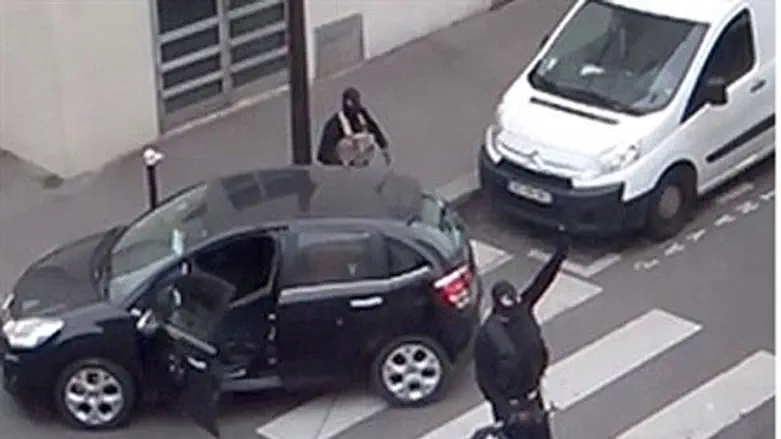
The head of BBC Arabic has instructed editors not to use the word "terrorist" to describe the Islamist gunmen who murdered 12 people at the Paris offices of the Charlie Hebdo satirical magazine.
Tarik Kafala told the UK's Independent newspaper that the term "terrorist" is too "loaded," and said the decision was in-line with the BBC's overall policy on reporting such attacks.
"We try to avoid describing anyone as a terrorist or an act as being terrorist. What we try to do is to say that 'two men killed 12 people in an attack on the office of a satirical magazine'. That’s enough, we know what that means and what it is," said Kafala.
"Terrorism is such a loaded word," he added. "The UN has been struggling for more than a decade to define the word and they can’t. It is very difficult to. We know what political violence is, we know what murder, bombings and shootings are and we describe them. That’s much more revealing, we believe, than using a word like terrorist which people will see as value-laden."
He also explained why the BBC, like other mainstream British media outlets, was censoring any images of the founder of Islam Mohammed, with the only exception being its inclusion of the front cover of the post-attack Charlie Hebdo "Survivors" edition.
But while "the cover has appeared… on a banner or on a newsstand, on our screens," he emphasized that "we haven’t shown it in full frame or real detail."
"We’re trying to minimize the insult while telling the story. We considered in great detail the risks to staff. We have people in Somalia, Yemen, Beirut and Libya. There were very strong editorial reasons for the BBC to show the cover because it was right at the centre of a huge international story," he explained.
BBC Arabic is the largest of the corporation's growing number of non-English outlets, with some 36 million viewers tuning in each week.
Although Kafala's statement came as a surprise to some, the refusal by the BBC to use the word "terrorist" has long been a point of contention, particularly in its coverage of the Arab-Israeli conflict.
The BBC's own guidelines make it clear that, in its view, "the value judgements frequently implicit in the use of the words 'terrorist' or 'terrorist group' can create inconsistency in their use or, to audiences, raise doubts about our impartiality." The guidelines further suggest that "it may be better to talk about an apparent act of terror or terrorism than label individuals or a group."
Alternatives include "bomber", "gunman" or "militant".
However, while consistently reticent about referring to individuals as "terrorists," some have noted that while some attacks - including those against Charlie Hebdo - are often referred to as "terror attacks" or "terrorist attacks", equally brutal attacks against Israeli targets are simply referred to using the the more "neutral" term "militant attacks."
